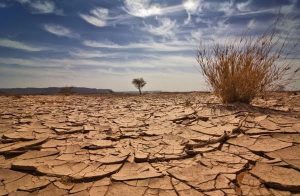Nigeria’s senate president, Dr. Bukola Saraki has said oil as an economic resource was no longer sustainable because it is now being replaced by increasing innovations in green energy production and supplies.
Saraki stated this at a recent green economy lecture series and presentation of a book – ‘Green Growth; pathways for Nigeria’ written by the president of the Sustainable Energy Practitioners of Nigeria (SEPAN), Dr. Magnus Onuoha in Abuja.
“In view of the prevailing economic recession we have found ourselves. It has become imperative that Nigeria think out of the box and transit towards a green growth development pathway because oil cannot sustain us anymore,” said Saraki.
He noted that the recent slump in global crude oil demand and signing of the Paris Conference of Parties (COP-21) Agreement by Nigeria were indications of this, and called on Nigerian lawmakers to support efforts to transit Nigeria to a green economy.
According to him: “Available data shows that Nigeria can generate over 3 million jobs annually in the renewable energy industry. Why are we not looking in that direction aggressively enough? This is an opportunity for us to create green jobs for our people.”
The senate president acknowledged that there could be some resistance to this new development, but advised that efforts must be sustained until success is achieved on this.
“However, it will not be an easy one as it is likely to meet the resistance of an entrenched system. This pathway is characterized by steps, changes in resource efficiency and shift in emphasis from the shareholder value to stakeholder value. It is a long term process which will require political leadership, new skills, collaborations, continued innovation, research and investment,” he explained.
He added that Nigeria’s recent ratification of the COP agreement in Morocco has shifted the responsibility of ensuring the implementation of the climate change agreements to the legislatures, and assured that the task will be undertaken with the relevant candour.
“Recently, our country joined other countries of the world in COP22 Morocco to examine the implementation of the Paris COP21 Agreement. The attention has now moved from the Executive to the Legislature to do the needful in ratifying and institutionalizing parts or all the Paris Climate Agreement in Nigeria.
“For us as Legislators, we have a challenge to do two fundamental things to make it work properly: First, we must establish a structure of communication with the international community to encourage the exchange of viable legislative ideas on safe environmental practices,” Saraki stated.





